What is it like to be a foster carer? How does it feel to take someone else’s child into your home? And what is it like to say goodbye?
It’s Foster Care Fortnight and we put those questions to a Fife couple who have taken in a dozen children over the last decade.
David and Christine Bartleman, of Cupar, have recently been rewarded for 10 years of outstanding commitment by their agency, Care Visions.
Unable to have children of their own but with love to give, they became foster carers after returning home from several years living in Spain and have opened their door to kids on both emergency and long term placements.
We asked them what life is like in their home – which they currently share with two teenage brothers and a 20-month old girl – and what it takes to be a foster carer.
What is it like welcoming a child?
For Christine, welcoming a new child or ‘placement’ is the most exciting part. She said: “Most people say they don’t cope well with losing one child. I’m the opposite; I enjoy the next challenge, to see the next child coming though the door, gauge what they’re like, what they like and what they don’t like.”
Care agencies match children with suitable families and David explained: “You will usually have a fair bit of advance warning, ‘this the child you are going to get, this is their history’ – you get the case notes to review so you can prepare.”
But he added: “You can get a call on a Friday afternoon saying ‘we have an 11-year-old boy, he is one of four siblings, an emergency placement, can you take him?’ Then two years later you’ve still got the same boy!”
What about saying goodbye?
Focussing on the next placement helps Christine deal with losing a child in their care. She said: “I say goodbye, I settle myself with that and I move on quite quickly. I think David probably suffers more emotionally than I do.
“You go into this from day one knowing this is going to happen, they’re not going to be with you for life.”
But she added: “These three children we have now, the oldest has been with us for almost five years, so it might be a totally different story if one of them decides to leave!”
It’s not just like having your own kids because these aren’t your own kids.”
David Bartleman
David recalled learning just before Christmas one year a child was going home in just days.
He said: “I spent the whole weekend blubbing.
“You just have to hope the right thing is being done. Not all placements end happily.”
‘Unfinished stories’
Although many children keep in touch with foster carers they leave behind, the front door closing can be the last carers know of some kids.
During their training David and Christine were warned of unfinished stories.
David explained: “You won’t always know how things end up. Some kids might want to keep in touch, some you will never hear from again and because of confidentiality you won’t know what happened in the next stage.”
What are the challenges?
“Fostering isn’t always easy, nobody pretends it is,” said David. “It’s a full-time – in the fullest sense of the word – all-encompassing role to take on.
“There are times when it can be not only physically draining but also emotionally and mentally draining.
“It’s not just like having your own kids because these aren’t your own kids – you are looking after children for which there is a shared responsibility between various parties and thus you are bound by protocols which birth families don’t have to follow.
…and the rewards?
David and Christine can see the positive influence they have had on the boys who are with them now.
Christine said: “We are watching them grow and make good choices whereas they might not have made good choices before.”
So long as you have a bit of love in your heart for someone else’s child you can be a carer.”
Christine Bartleman
David said: “It’s rewarding when you see you are getting through, but that doesn’t always happen. Kids in so-called normal families don’t always listen to their families so it can be even more challenging when you’re foster carers.”
And with a toddler in the house who was with them as a tiny baby, the couple are enjoying witnessing the early years milestones. David said: “There’s something new everyday.”
What qualities are needed?
According to Christine anyone can be a foster carer.
“You just have to have time to give to a child, a bit of understanding and acceptance that everyone’s background is not the same as yours.
“So long as you have a bit of love in your heart for someone else’s child you can be a carer.”
More carers needed
David and Christine were among seven foster carers presented with 10-year awards by Care Visions.
Cathy Jamieson, the agency’s chairperson of children’s services, said: “Our foster carers play a huge role in young people’s lives, whether for short breaks to support families or through longer term and permanent placements.
“There are still many children and young who need foster care, and I know that our long serving foster carers would encourage anyone thinking about it to take the next step and apply – and they would be on hand to offer advice and support.”
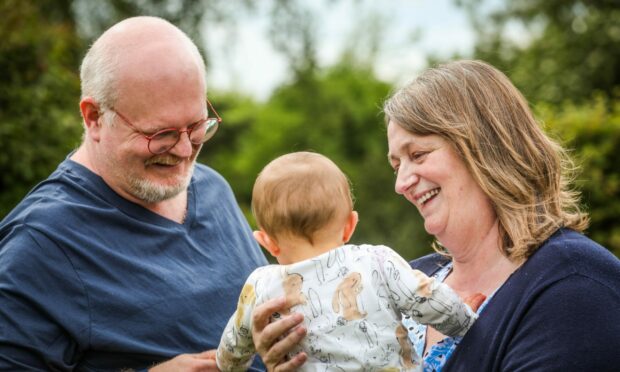
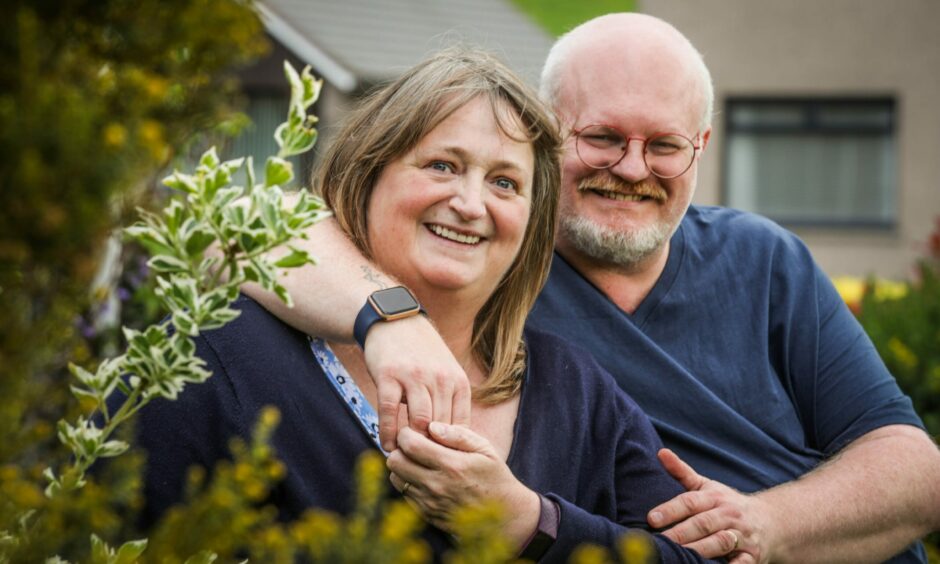
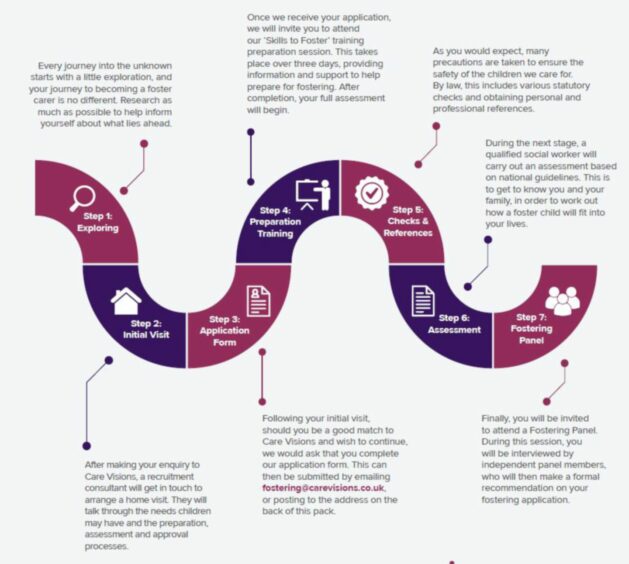
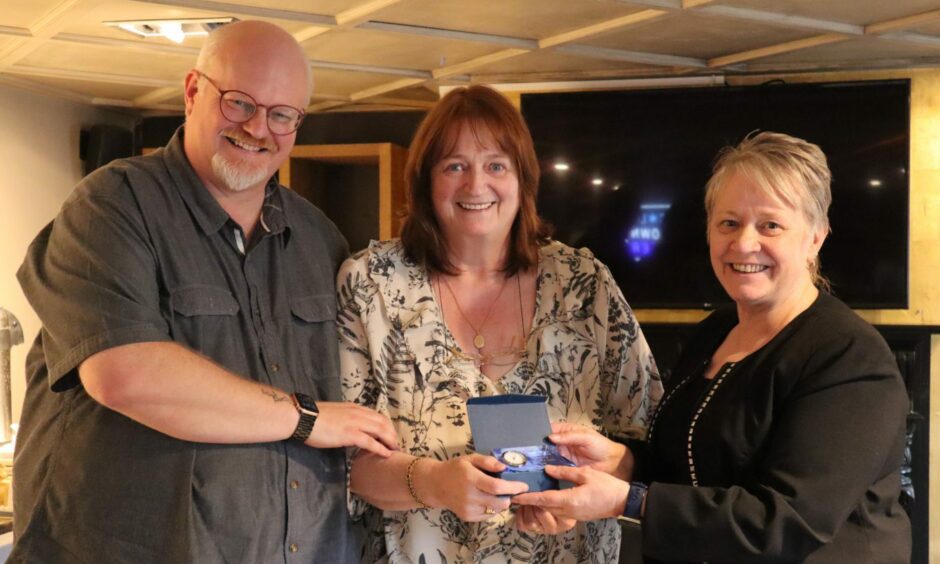
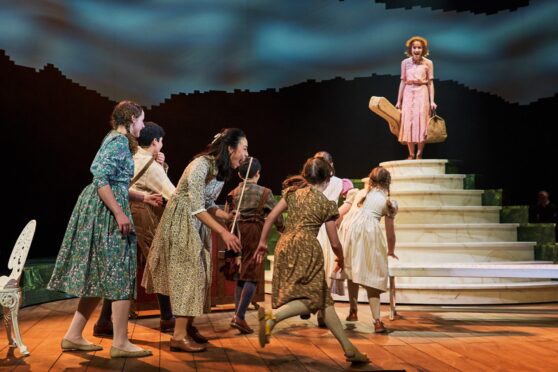



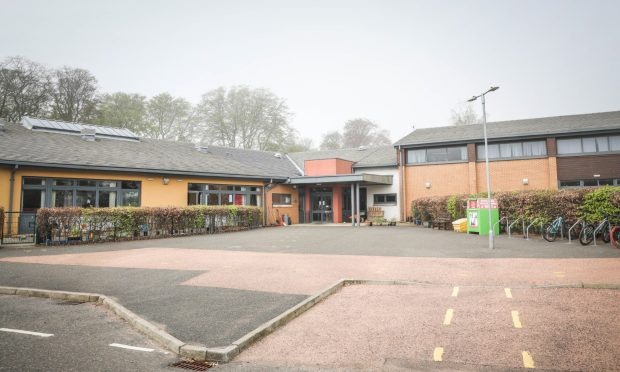





Conversation